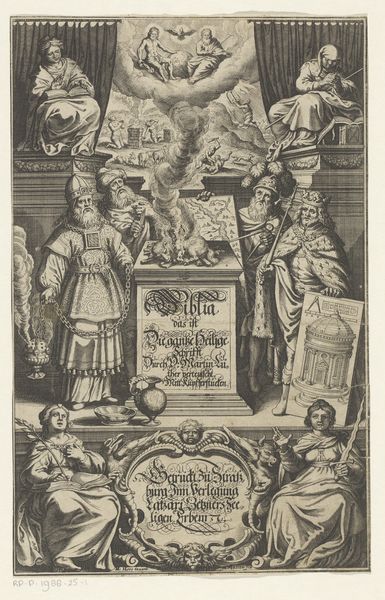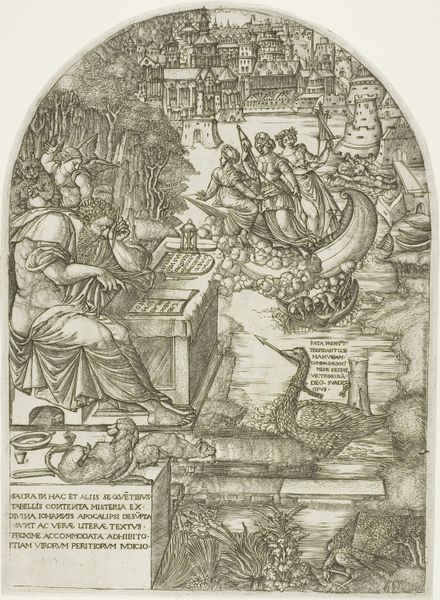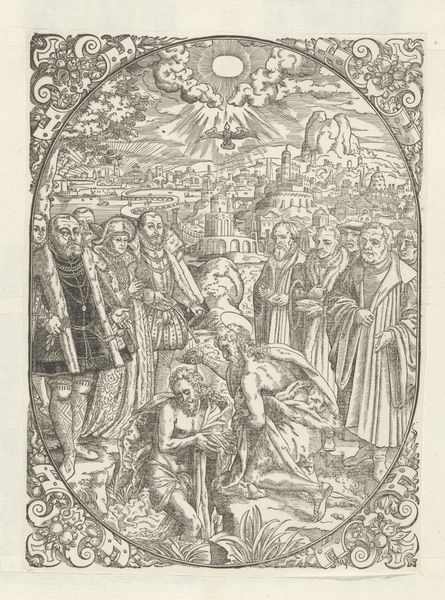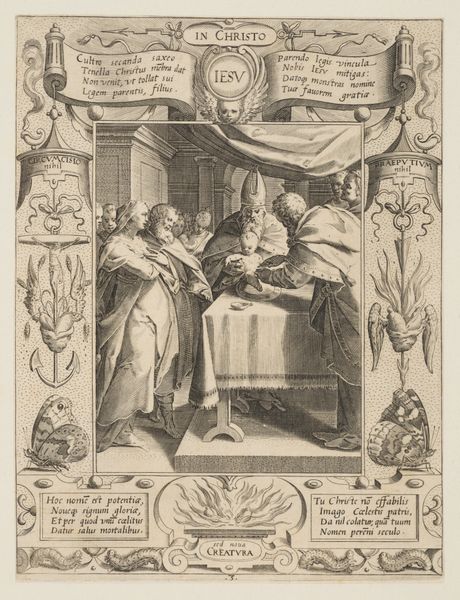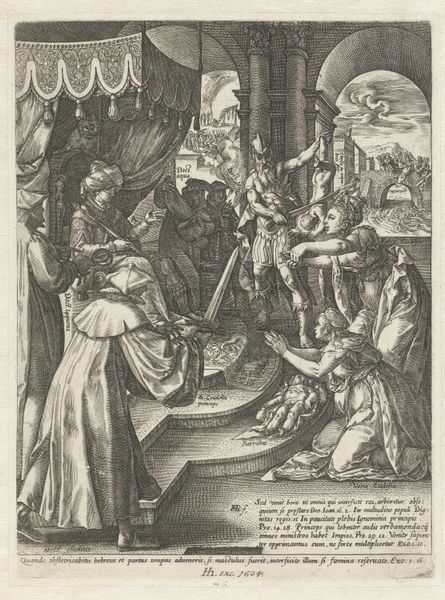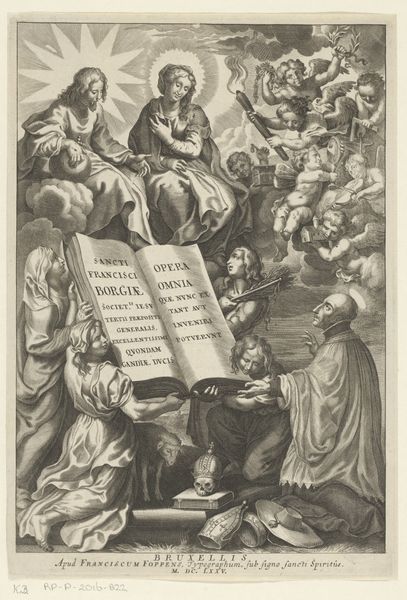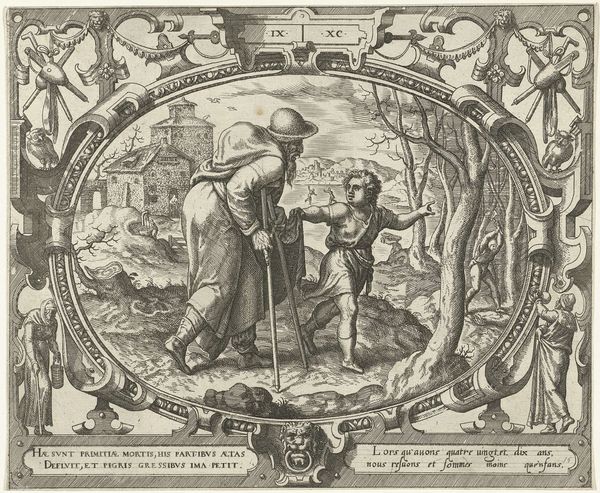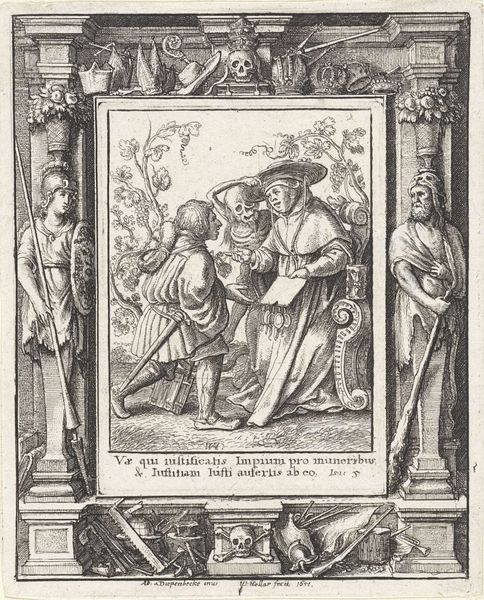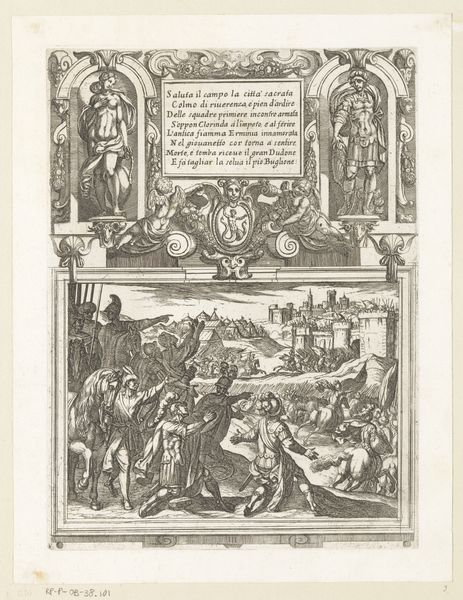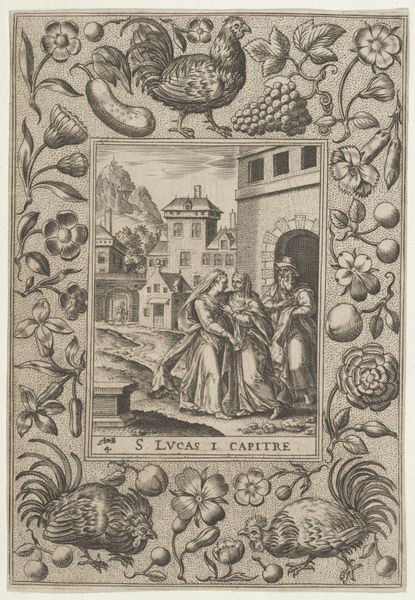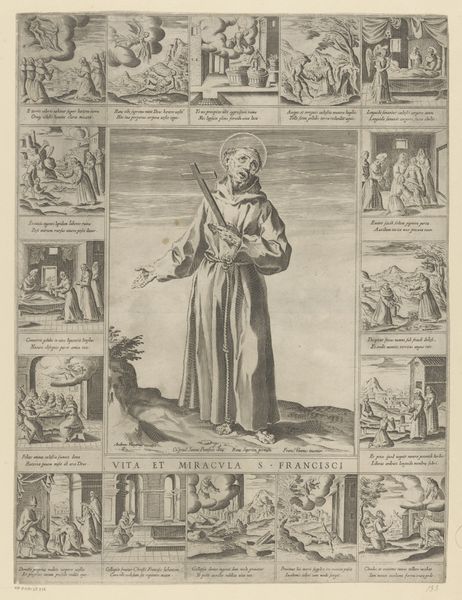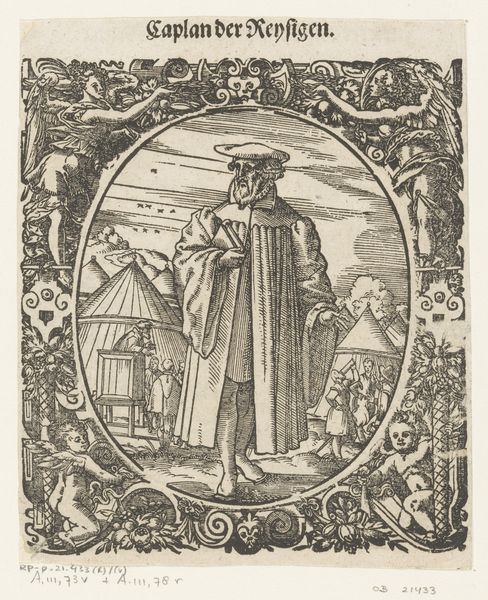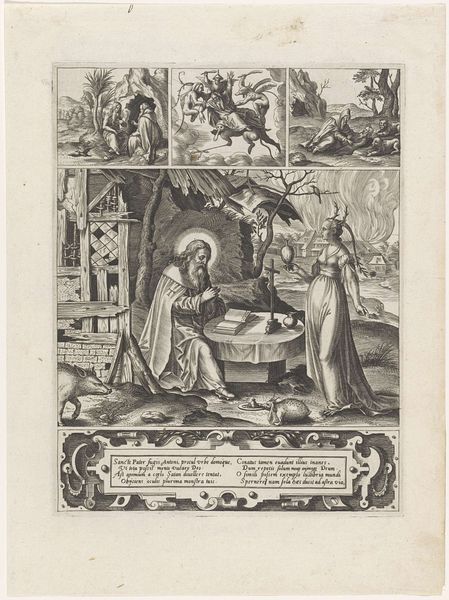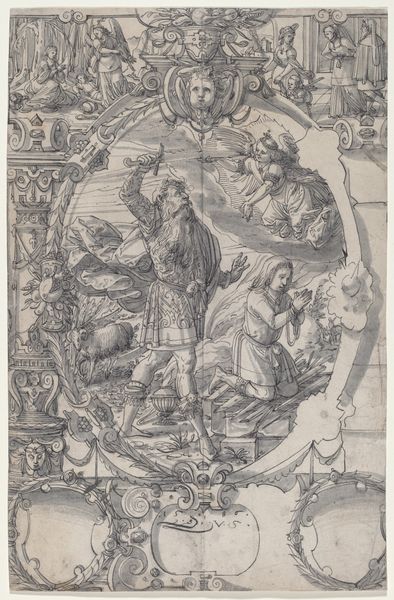
Dimensions: height 253 mm, width 188 mm
Copyright: Rijks Museum: Open Domain
This engraving, made by Hendrick Goltzius around 1590, visualizes the concept of redemption from evil. But beyond its religious subject, it reflects a period of intense social and religious upheaval in the Netherlands. The image creates meaning through its allegorical figures and biblical references, all framed within an elaborate border of text. Made in the Dutch Republic, a culture shaped by the Reformation and the struggle for independence from Spanish rule, the print resonates with the religious tensions of its time. It presents a vision of moral purification, casting off vices like greed and idolatry. This undoubtedly speaks to the contemporary debates about proper religious practice and the rejection of perceived corruption within the Catholic Church. The presence of Latin text suggests an educated audience, likely aligned with reformist ideas. Understanding this print requires looking at the social and institutional contexts that shaped its production. Research into the religious and political climate of the Dutch Republic, along with the study of emblem books and theological debates of the period, offers deeper insights. The meaning of art is always contingent on its social and institutional context.
Comments
No comments
Be the first to comment and join the conversation on the ultimate creative platform.
